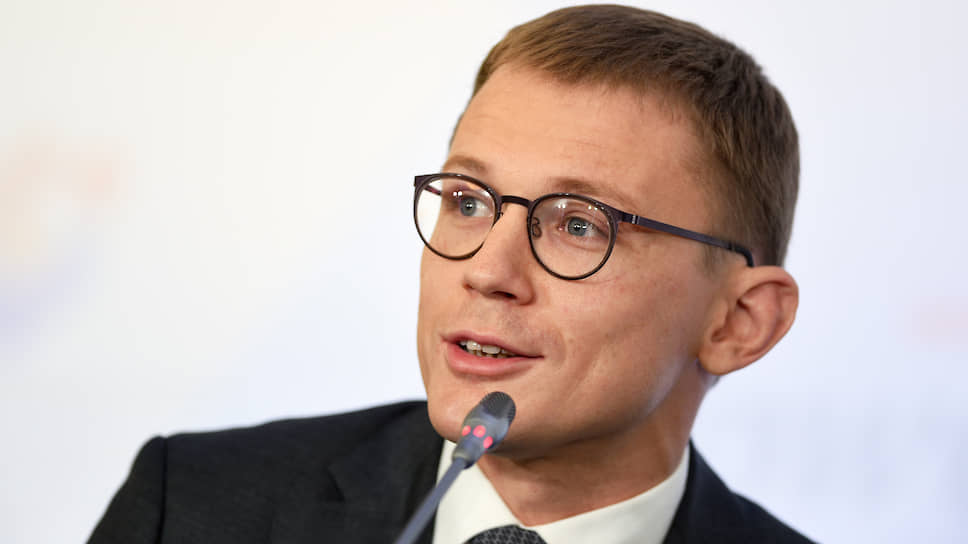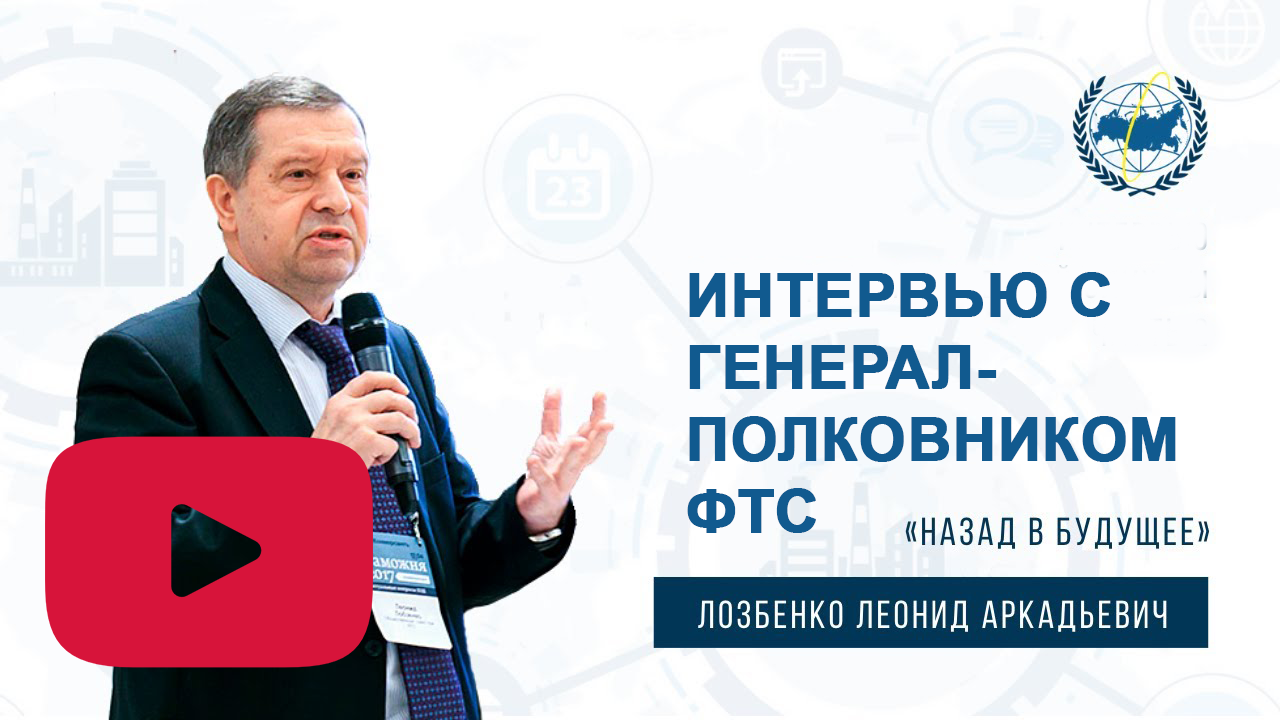
On January 15, 2016, the President of the Russian Federation signed a Decree on the transfer of the FCS of Russia to the jurisdiction of the Ministry of Finance. State Secretary – Deputy Finance Minister Alexei Valerievich Sazanov tells about the changes that have occurred since the Decree came into force, how it affected the activities of the customs authorities and their interaction with foreign economic activity participants.
Alexey Valerievich, since 2016 both the customs and tax authorities are under the auspices of the Ministry of Finance. How did this affect the services?
Now we can say with confidence that we have managed to achieve the main goal set when transferring the Federal Customs Service of Russia to the Ministry of Finance – we have built a unified management system for accounting and administration of tax and customs payments.
The efforts undertaken to deepen the interaction of tax and customs authorities allow ensuring a high level of collection of customs and tax payments against the background of creating more comfortable conditions for foreign economic activity. This also implies an increase in the effectiveness of control work, including in terms of optimizing tax control of bona fide entrepreneurs, as well as reducing the administrative burden on the business community by eliminating excessive requirements for the provision of documents. In recent years, the administrative costs for a bona fide business have dropped significantly. The digital transformation of customs has, of course, played a key role in this.
Electronic customs and electronic declaration centers (EDCs) have been created, which use modern technologies for automatic registration and release of goods. This allows you to shorten the processing time and eliminate the influence of the human factor when making decisions. Today, a participant in foreign economic activity can submit all the necessary documents in electronic form, and pay customs payments online. For example, in 2019, a total of 5 million declarations were submitted, and almost 100% of them were in electronic form. This is a great indicator. It is impossible to stop at what has been achieved. We all together still have a lot of work to do to further improve our work efficiency.
What steps are planned to further reduce administrative pressure on business? How to ensure successful interaction of foreign trade participants with customs and tax authorities?
We believe that the result of further development of interaction should be the creation of new convenient services for foreign trade participants. We need to transform customs administration into a fast and high-tech process. And this can be done only through the use of advanced technologies, the introduction of modern methods of processing large amounts of data and artificial intelligence. A number of reforms are underway to address these challenges.
The main directions of the envisaged measures are the reduction of the terms of customs operations, the uniform law enforcement practice of the customs authorities and the minimization of the need for the personal presence of company representatives in the customs authorities. We see a request for such changes from the business community. And if we talk about the interaction of the service with the business? How well is this communication established now?
It is obvious that it is simply impossible to achieve high results without the active participation of the business community in all processes of customs transformation. Customs and business are the two main players in this field, which must act as allies and work together to solve existing problems. Therefore, it is very important that the dialogue between them is constructive. We strive to involve foreign trade participants in the discussion both at the stage of determining the vector of development of the customs authorities and at the stage of implementing specific initiatives. The regulator may not always see the subtleties and difficulties that a business faces in practice. We understand this and rely on their expert opinion in many matters.
And business, in turn, must remember that while simplifying procedures, one must also take into account the need to maintain the quality of control and prevent the growth of violations and abuse. All the proposed changes must meet both the interests of good business and the interests of the state. Business is always wary of audits.
How much has the effectiveness of the control and supervisory activities of the FCS and the Federal Tax Service of Russia changed in recent years?
In this part, a lot of work was done to expand information exchange between services, business processes of control work were set up. All received information is now used in departmental control systems. The most important thing is that we have built a system for the exchange of data on identified risks. Information on the measures applied to the participants in foreign economic activity is mutually used by the FCS and the Federal Tax Service of Russia, which ensures closer attention and careful control over the activities of individual organizations. If, for example, an organization is at risk from the customs authorities, it automatically falls into a high risk group during tax control. And for companies with a positive history, the situation is the opposite: in respect of them, inspections are carried out less often.
It turns out that the number of checks is reduced. How does this affect budget contributions? Is the effectiveness of inspections from the point of view of additional payments to the budget not decreasing?
Just the opposite. You rightly said that the number of inspections of foreign economic activity participants was reduced, but at the same time their effectiveness increased. For example, let’s compare 2019 with 2017: there were 38% fewer inspections in 2019, while their effectiveness increased by 25%. The basis of customs control is now based on the principle of point, rather than complete control. And both bona fide business and the state benefit from this.
As statistics show, the administrative burden on participants in foreign economic activity is reduced, while at the same time the budgetary efficiency of inspections increases. As a result of joint activities, tax deductions increase, and there is an increase in collection of payments at the declaration stage. This is an indicator that interdepartmental interaction has allowed coordinated inspections to become the most effective method for conducting inspections of foreign economic activity participants. Returning to the issues of improving administration. In 2016, the President of the Russian Federation in his message indicated to the parliament that it is necessary to form a single mechanism for administering tax, customs and other fiscal payments.
What is this mechanism? Tell us what its basis and main advantages are. To accomplish this task, we focused on creating a national traceability system for imported goods in Russia.
Its introduction will ensure control over the legality of the turnover of goods in the domestic market at all stages of their use – from the moment of import to retail sales. This will be the Russian segment of the traceability system, which is currently being formed within the EEU. The system is based on the use of information from documents drawn up during the import and subsequent circulation of goods. These are primarily goods declarations and invoices. That is, we are not talking about the use of various methods of marking goods, but only about the traceability of the movement of goods according to documents. It is important not to confuse one with the other, these are completely different things.
There are three main goals that we pursue when creating this system. The first and most global one is the whitewashing of the sectors of the economy associated with traceable goods, without complicating the procedures for registering goods and creating an additional burden on market participants. The second is to increase the efficiency of customs and tax control and create conditions that exclude the use of various schemes for evading customs and tax payments. And the third is counteraction to the declaration of inaccurate customs value of traced goods.
How is the work on creating the system progressing? What, in your opinion, should be the key to success for its full launch?
The defining condition for the success of the project is, of course, the digitalization of workflow and the automation of information interaction between foreign economic activity participants, tax and customs authorities. The system is created in stages. We are now at the second stage. At the first, the exchange of electronic invoices for goods subject to traceability was introduced. The purpose of the second stage is to conduct an experiment on the traceability of certain types of goods released on the territory of Russia under the customs procedure for release for domestic consumption. Participation in this experiment is completely voluntary.
It is very important that as a result, the customs authorities will be able to prevent and detect violations both at the stage of import and declaration of goods, and at the stage of post-control. Illicit trafficking in goods, including sanctions, will be more efficiently detected. The efficiency of control over the customs value of goods, country of origin, as well as the application of rates of customs duties and taxes will increase.
At the moment, within the framework of the experiment, the business processes introduced into information systems have already been tested. They have proven to be effective. Efficiency was shown by the methods of visualizing sales chains, identifying discrepancies in information from documents with the details of goods and declarations for these goods, as well as the method of calculating risk criteria. The final stage will be a full-fledged commissioning of the system and maintaining its operability.
We expect that the system of traceability of goods will become another economic incentive for participants in foreign economic activity to legalize their activities. By increasing the transparency of the turnover of goods, it will become more difficult to evade payment of customs duties and taxes.
Source: Customsonline




